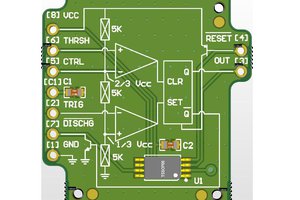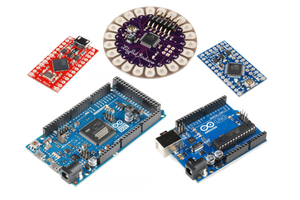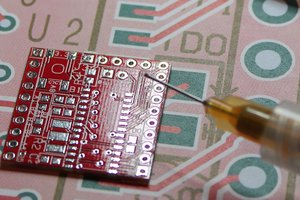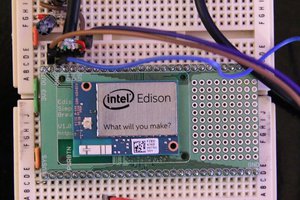A few months ago, I held a workshop for introducing people to the software side of ESP8266. For GPIO programming, I needed some external circuitry, so I included a breadboard, resistors, buttons, LEDs etc in the package.
However, this took a lot of time during the workshop, and included a necessary quick introduction into electronics, which was way out scope.
After the workshop, some people requested a re-run, because they couldn't make it at that time, or only heard about it after the fact. So, I'm planning the next iteration. For this, I'd like to streamline the whole process. For this, I got the idea to construct a finished board that can simply be plugged into the development board (the Wemos D1 Mini Pro in this case).
I didn't want to include the whole ESP module on the board, since people should be able to take their dev board and develop their own things on it without having to buy another module.
The board is designed for mass assembly, and so everything is SMD (except the pin headers, because they're mounted on the other side, and the DS18B20, which is not available in SMD).
Included peripherals:- A simple LED for PWM testing
- Two pushbuttons for GPIO reading and interrupts
- A DS18B20 temperature sensor
- A single WS2812B with chainable output
The board was created in the free and open source PCB designer KiCAD, so everyone can open and modify it.
 anlumo
anlumo

 Raymond
Raymond

 Stephen Edwards
Stephen Edwards